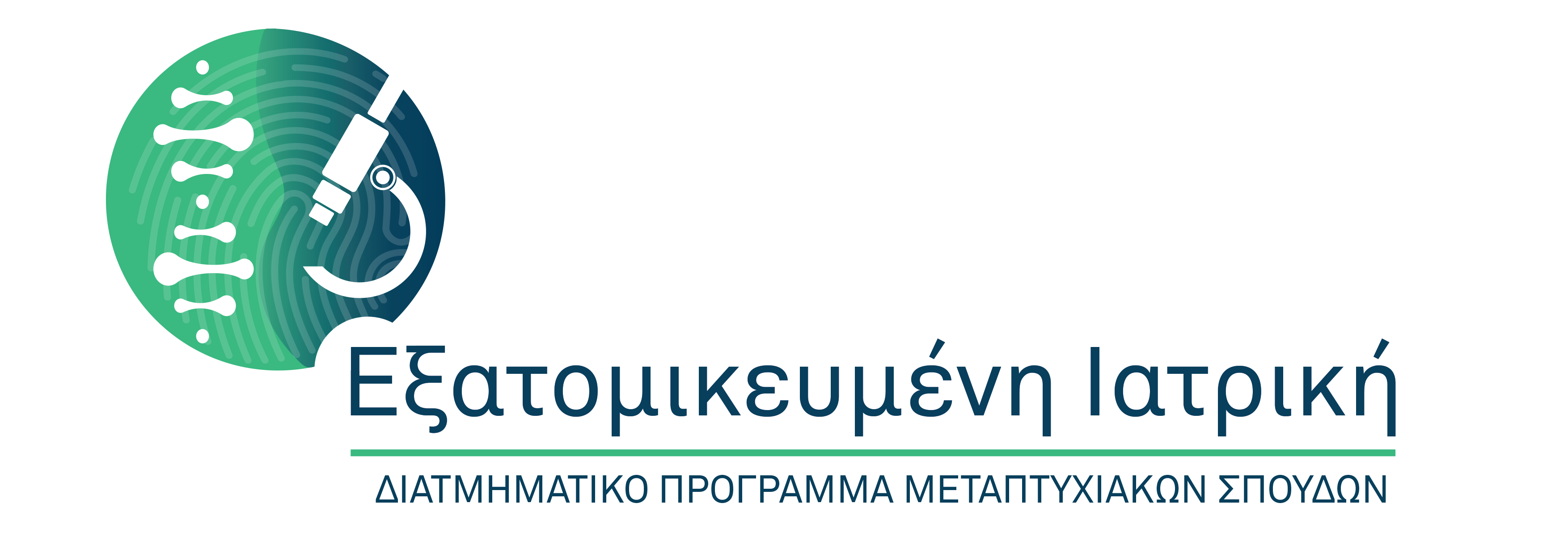The purpose of the course is the critical understanding of the contribution of the subject of Molecular Biology to Personalized Medicine. As part of the course, postgraduate students are asked to understand the importance of Molecular Biology in Personalized Medicine. The structure and function of the human genome is described and the genotype/phenotype in the postgenomic era is analyzed. Both the flow of genetic information: from DNA to proteins and the regulation of gene expression are described. At the same time, the course aims to acquaint students with RNA biology and cellular communication. In addition, they are analyzed in relation to DNA: the maintenance of genetic information, damage and repair, genetic diversity and the association of its variants with diseases, as well as the genetics of cancer.
The course aim is the critical understanding of the subject of Molecular Pathological Anatomy. In the course’s context, postgraduate students are asked to understand the molecular basis of the pathogenesis of diseases, with an emphasis on cancer's molecular pathogenesis. The numerous, basic molecular pathways that contribute to the malignant transformation of cells, the development and progression of carcinogenesis, as well as the individual elements that contribute to the reversal and control of cancer are analyzed. Special emphasis is given to the recent developments in the analysis and sub-typing of tumors, based on their molecular profile in the individual systems. At the same time, the course aims to familiarize the postgraduate student with the concept of prognostic and predictive biomarkers, checked in the context of the histopathological and molecular analysis of tumors and the therapeutic treatment of various types of cancer. Finally, emphasis is placed on the overall understanding of modern approaches to diagnosis and a targeted, personalized therapeutic approach to the disease.
The purpose of the course is the critical understanding of the subject of Molecular Diagnostics and the contribution of Biomarkers. This course consists of an introduction to Molecular Diagnostics aiming at the same time to familiarize the student with the concepts and categories of biomarkers as well as the approaches and technologies for their discovery. In addition, established methodologies in Molecular Diagnostics and emerging technologies (Metabolomics, Liquid Biopsies-Cell Free DNA, Exosomes) are described. Finally, basic examples of biomarkers in health and specific examples of Biomarkers and Molecular Diagnostics in the research and clinical practice of Cancer, Diabetes and Neurological diseases as well as in drug development and pharmacotoxicology assessment are analyzed.
This course aims to acquire knowledge, skills and abilities related to level 7 of the European Qualifications Framework for Lifelong Learning. Upon successful completion of the course, students will be able to understand the application of advanced delivery systems for personalized diagnosis and treatment, know production methods of advanced systems for administering therapeutic and diagnostic (imaging) substances as well as in vitro and in vivo methods of evaluating advanced therapeutic and diagnostic (imaging) substance administration systems. Furthermore, students will understand the concept of pharmacogenomics and the developments of biomedical technology and genetics in relation to response to medication and also the role of pharmacogenomics in modern medical practice and specifically in a number of medical specialties, such as cardiology, oncology, psychiatry, etc., as well as the different categories of patients based on their ability to metabolize medicinal substances. Finally, the students will be familiar with concepts such as population pharmacogenomics and know how to use bioinformatics tools to translate genetic information into a clinically understandable form.







